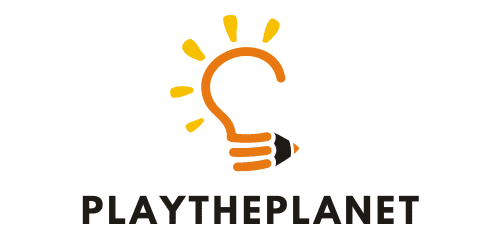How can AI-driven personalized education improve student outcomes in schools?

In today’s fast-paced, technology-driven world, education systems are constantly evolving to meet the needs of students. One of the most groundbreaking developments in recent years is the rise of AI-driven personalized education. This approach uses artificial intelligence (AI) to tailor educational content and instruction to the individual needs of each student.
The Significance of Personalized Education
Traditional education models have often failed to accommodate the diversity and individuality of students. The one-size-fits-all approach of conventional classrooms tends to leave many students behind, especially those who fall outside the ‘average’ learning curve.
Sujet a lire : What impact does green building certification have on property values and energy savings?
Enter personalized education, an approach that revolves around the individual learning needs, styles, and paces of students. Personalized education takes various forms, but at its heart, it’s about teaching students in ways that best suit their learning capabilities.
AI-driven personalized education takes this concept a step further by leveraging the power of technology and data to provide a more targeted and efficient learning experience. Through AI, educators can harness an unprecedented level of individual understanding and support that is not possible with human capacity alone.
A voir aussi : What are the cultural influences on sustainable dietary choices around the world?
How AI Powers Personalized Education
Artificial intelligence has the potential to revolutionize the way educators provide personalized education. This is achieved through machine learning and data analytics, two key components of AI that allow it to adapt and learn from data.
In the context of education, AI-powered systems can analyze vast amounts of data about a student’s learning style, comprehension levels, study habits, and other crucial factors. This data is then used to tailor educational content and strategies to the individual student, allowing for a more customized and effective learning process.
Moreover, AI can also offer adaptive content and assessments. This means that the educational material can adjust in real-time based on the student’s performance. If a student is struggling with a particular concept, the AI system can provide additional resources or change the approach to help the student overcome their challenges.
The Role of Educators in AI-driven Personalized Education
In an AI-driven personalized education system, the role of educators is not diminished, but rather enhanced. Teachers become facilitators of learning, guiding students through the personalized content and strategies provided by the AI.
AI can help educators track student progress in real-time, identifying strengths and weaknesses, and offering insights into how best to support each student. This data-driven approach allows teachers to provide more targeted and effective instruction, and intervene more quickly when students are struggling.
Furthermore, AI can handle much of the administrative load, freeing up teachers to focus on what matters most – engaging with students. This can lead to improved student-teacher relationships, a critical factor in student performance and success.
The Impact on Student Outcomes
The impacts of AI-driven personalized education on student outcomes can be significant. By providing tailored content and strategies, AI can help students grasp complex concepts more easily and quickly. It can support students at their own pace, ensuring that those who need extra help get it, and those who are ready to move forward can do so without waiting.
Furthermore, AI-powered systems can provide continuous assessment, providing immediate feedback to students and teachers. This real-time feedback allows for prompt intervention, which can prevent students from falling behind.
In addition, personalized education can also boost student engagement and motivation, as students are likely to be more interested in learning material that is relevant to them and matches their learning style.
Looking to the Future
While AI-driven personalized education is still in its early stages, its potential to transform the education system is immense. As AI technology continues to evolve and become more sophisticated, its ability to provide highly personalized and adaptive education will only increase.
In the future, we might see AI systems capable of providing comprehensive, personalized learning paths for each student, from the day they start school until the day they graduate. These systems could adapt and evolve with the student, ensuring that their educational journey is as effective and engaging as possible.
In conclusion, AI-driven personalized education represents a significant step forward in our quest to provide quality education for all students. By harnessing the power of AI, we can offer individualized, adaptive learning experiences that can help all students achieve their full academic potential. Despite various challenges that lie ahead, the future of education looks brighter with AI in the picture.
Predictive Analytics and Data Privacy
In AI-driven personalized education, predictive analytics play a critical role. Predictive analytics use student data to forecast future outcomes, thereby enabling educators to implement proactive measures rather than reactive ones. It assesses historical and real-time data to identify patterns that can predict a student’s future performance. For instance, if a student shows consistent difficulty in a specific subject, predictive analytics can forecast potential challenges in related subjects. This allows educators to provide targeted support to the student in those areas before they even begin, thus preventing potential struggles.
Data privacy, however, is a crucial concern in AI-driven personalized education. Since AI systems rely heavily on student data to function, it’s crucial to ensure that this data is collected, stored, and used securely and ethically. Schools and tech companies must work together to establish strong data privacy policies, safeguarding sensitive student information. While AI’s use is beneficial, it’s also essential to ensure that students’ rights and privacy are not compromised.
Moreover, AI-driven personalized education must adhere to all relevant data privacy laws and regulations. This means ensuring that student data is anonymized, stored securely, and only used for its intended purpose – to improve student learning experiences. Failure to protect student data can not only have legal implications but also damage trust between students, parents, and schools.
Administrative Tasks and The Education Industry
AI’s benefits for education aren’t limited to just personalized learning. It can also handle many administrative tasks, thereby freeing up educators to spend more time interacting with students. The process of grading, for instance, can be significantly streamlined with AI. Automated grading systems can provide students with immediate feedback, allowing them to understand their strengths and weaknesses in real-time.
In addition to grading, AI can also assist with scheduling, tracking student attendance, and monitoring student progress, among other administrative tasks. By automating these tasks, educators can devote more time to teaching and less time to paperwork, thereby enhancing the overall learning experience.
As the education industry continues to evolve, so does the role of AI. Companies are developing more sophisticated AI tools and systems to support personalized education, and schools are increasingly recognizing the importance of incorporating AI into their teaching methodologies.
The education industry, in the coming years, will likely witness a significant transformation, with AI playing a central role in this change. By embracing AI, schools can offer their students a more personalized, adaptive learning experience that not only improves learning outcomes but also prepares students for a future where AI will be an integral part of everyday life.
Conclusion
In conclusion, AI-driven personalized education offers a promising avenue for improving student outcomes and transforming the education industry. By enabling personalized, adaptive learning experiences, AI can help students learn at their own pace, in their own style, thereby improving engagement and performance.
Predictive analytics can provide valuable insights into student learning, allowing for proactive intervention, while robust data privacy measures can ensure the secure and ethical use of student data. Additionally, by automating administrative tasks, AI can free up educators to focus more on teaching and less on paperwork.
The journey towards fully integrating AI into education might be filled with challenges, but the potential benefits for students make it a path worth exploring. As we continue to advance in this digital age, AI-driven personalized education will likely become an essential part of the education landscape, offering new and exciting opportunities for both students and educators.
